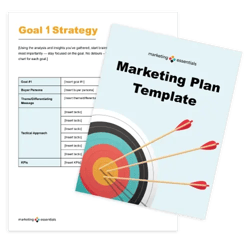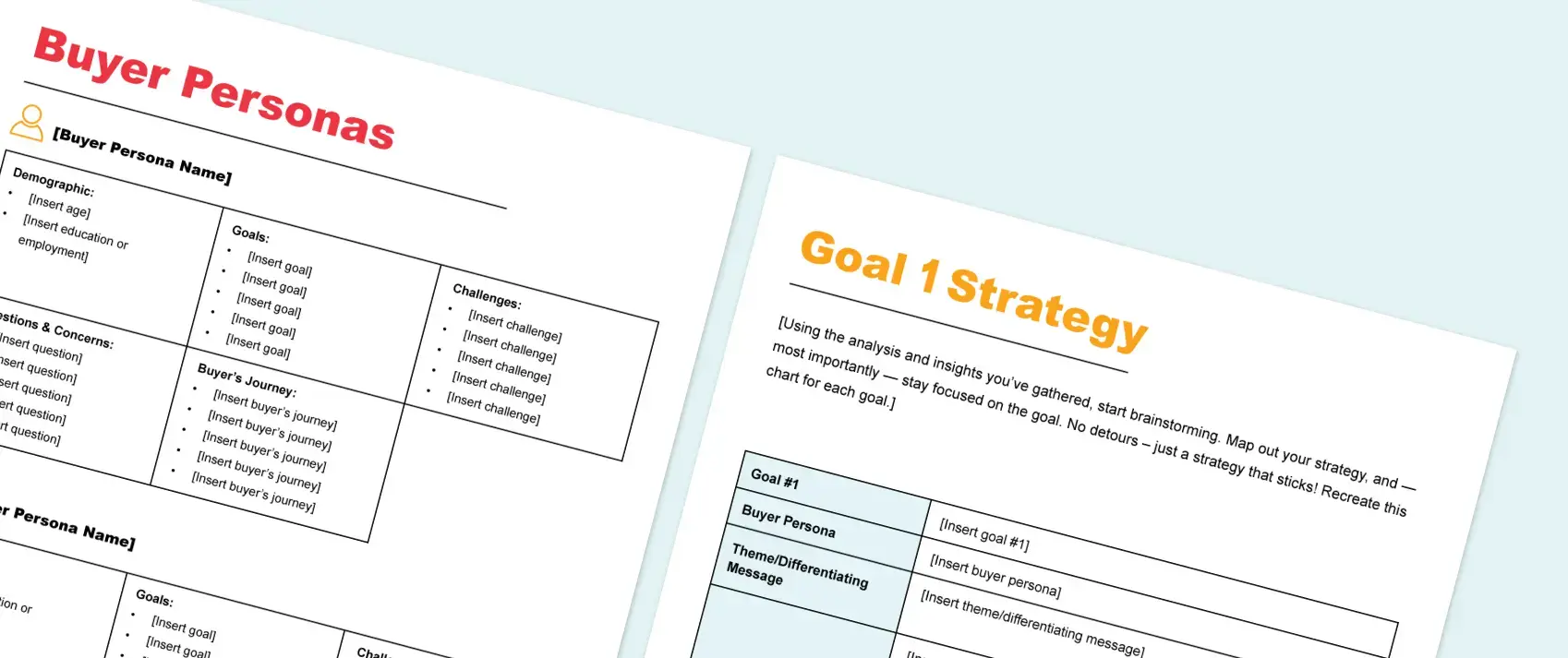Initially published in 2023 and updated in 2025.
A strong marketing plan is more than a checklist — it’s a strategic roadmap that connects your marketing efforts to your business goals. It outlines where you're headed, how you’ll get there and what success looks like along the way.
Without a well-structured marketing plan, marketing can quickly become a series of disconnected efforts that waste time, budget and energy.
But when your marketing plan is thoughtful and well-written, it becomes a tool your team actually uses. Instead of sitting on a shelf, it serves as a compass, guiding your strategy and helping you stay focused on your goals.
What Is a Marketing Plan?
A marketing plan is a documented strategy that outlines how you’ll reach your audience and achieve your business goals through marketing. It’s both your roadmap and your measuring stick — helping you stay focused, aligned and accountable.
Your plan should include everything from high-level objectives to tactical campaigns, timelines and budgets. Done right, it connects the dots between vision and execution.
Why You Need a Marketing Plan
Without a clear plan, marketing often turns into a game of guesswork — random posts, inconsistent campaigns and unclear priorities.
A well-built marketing plan:
- Aligns your entire team, including marketing, sales, leadership and any outsourced agency partners, so everyone is rowing in the same direction.
- Clearly communicates marketing’s strategic intent and operational needs, making it easier to secure leadership buy-in and budget approval.
- Guides implementation by outlining what should be done, when, by whom, and with what resources. It removes ambiguity and keeps teams on track.
- Serves as a baseline for ongoing updates to leadership, making it easy to report progress, show results, and reinforce the value of your efforts.
- Acts as a benchmark to help you know when to pivot, making it easier to adjust tactics based on results or changes in the market.
In short: no more throwing darts. It’s time to build a bullseye strategy.
What to Include in Your Marketing Plan
Use these core sections to build your plan. You can follow along using our free marketing plan template that guides you through each step with prompts and space to customize.
1. Executive Summary
Paint the big picture. Where is your business today? Where do you want to go? How will marketing get you there?
2. Goals
Set SMART goals (Specific, Measurable, Achievable, Relevant, and Timely) to drive focus. Every tactic you implement should support one of these goals. Pro tip: Keep it to 1–3 goals. Too many can dilute your efforts.
3. Competitive Analysis
Understand your position in the market. Who are your top competitors? What are the current trends and risks? Include a simple SWOT analysis (Strengths, Weaknesses, Opportunities, Threats) to ground your strategy.
4. Buyer Personas
Define your ideal customer(s). Who are they? What do they care about? Where do they spend their time? Good buyer personas guide both your messaging and your channel strategy.
5. Foundational Fixes
Before launching campaigns, audit your current assets. Are your website, branding, and messaging optimized to convert? Fixing gaps now will save time and money later.
6. Strategy (Per Goal)
For each goal, build a focused strategy. Identify your target audience, key message, and mix of tactics — such as email marketing, paid ads, content or social media. Use the worksheet in our marketing template to map each strategy in detail, from persona and positioning to campaign channels and KPIs.
7. Creative
Bring your strategy to life with visuals and content. Think: ad mockups, brochure concepts or sample messaging. This is where you get to show, not just tell.
8. Timeline
Lay out your tactics across a 12-month calendar. This helps you visualize your plan, set expectations and stay on track throughout the year.
9. Budget
Estimate costs by tactic or campaign. A clear budget ensures your resources are allocated where they’ll drive the most impact.
Ready to Build Your Plan?
Our free, fillable Marketing Plan Template includes everything you need to build a strong foundation for success. With guided prompts, customizable worksheets and real-world examples, you’ll have a clear path to creating a strategic, actionable plan.
What's Inside:
- Goal Setting Framework
- Competitive Analysis Tools
- Buyer Persona Examples
- Strategy Maps
- Creative Examples
- Budget Charts
- And much more!
Download your template here:



